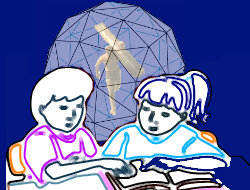The Ideal History/Gaming Syllabus, or, What did I get myself into
In the Fall term this year, I will be teaching a course on games and simulation for history (Hey Carleton students! Sign up for HIST3812 now!). What with all the chaos of a term coming to an end, I haven’t begun to think about what such a syllabus might lookContinue Reading
Problem Spaces, Part 2: The History Class
Last week I proposed that the design of historical simulation games around problem spaces provides guidelines for how one can meaningfully critique them as historical interpretations. This week moves to the flip side of the coin: how the concepts and functioning of problem spaces illustrated so well in historical simulationContinue Reading
Performances and operations (rules of the text 4)
As I’ve worked on these posts, I’ve been torn about how much of other scholars’ work to bring in, or, as I was taught to say in grad school, to adduce. It seems to me that the moment most readers of blogs see a reference to a book they haven’tContinue Reading
Historical Simulations as Problem Spaces: Some Guidelines for Criticism
What simulation games do best as interpretations is present the past in terms of problem spaces. This is a concept I have co-opted from games and learning theorists (most notably Henry Jenkins and Kurt Squire) for use in thinking about how we teach and learn about the past and useContinue Reading
Pilgrimage in (Minecraft) Middle Earth
Before beginning, I ask a moment of your time to view the short video below: For anyone who played the original Nintendo Entertainment System (NES), the above depiction should be instantly recognizable as the very popular boxing game, ‘Punch-Out!!’. What might not be so obvious, at least until the videoContinue Reading
Guns, Germs, and Horses: Cultural Exchange in Sid Meier’s Colonization
In preparation for a book chapter on Colonization we thought we would take the opportunity to blog through and invite a broader discussion of some of the ideas that we hope to engage with in that chapter. This is the second in a series of post which we will co-write.Continue Reading
Transmedia and tabletops (rules of the text 3)
If a rule, in general, is a constraint placed on an agent by the agent’s cultural situation, then in a cultural zone understood as appropriate for play that general sense of “rule” transfers nicely to a sort of constraint that allows a player to make choices (cf. Sid Meier’s famousContinue Reading
Historical Hit Points 1: Uses of History in Tabletop Role-Playing Games
In my introductory post for this series on tabletop role-playing games (which dropped last December), I sketched out a brief portrait of my background with RPGs and laid down a marker for my main goal. To quote from the previous post, I want “to turn a more thorough and criticalContinue Reading
if (!isNative()){return false;}: De-People-ing Native Peoples in Sid Meier’s Colonization
In a previous post I asked if the game Colonization was offensive enough. That post explored my own experience playing the game as a way to think through what the game means and what it says. As a result of that post, Rebecca Mir, an M.A. candidate at Bard GraduateContinue Reading
Dealing with Multiple Narratives of “Truth” and Creating Meaningful Play
A certain amount of knowledge is required for players to navigate video games, whether this means remembering the weak points of the different splicers in BioShock, or remembering the buttons to press to play Epona’s song in Ocarina of Time. This knowledge is gained throughout play, rather than presented toContinue Reading




